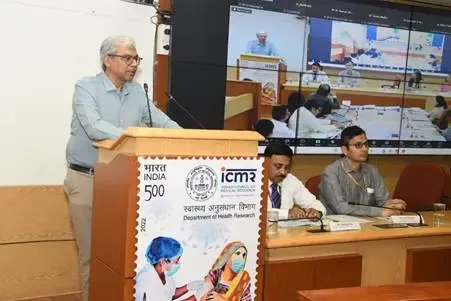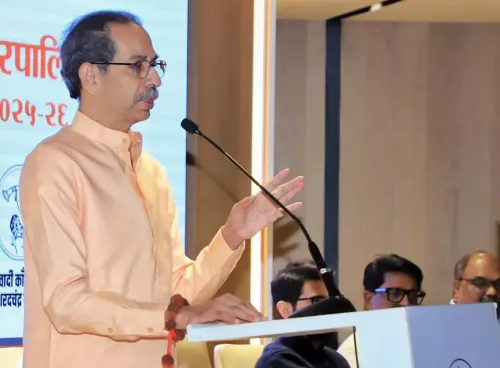ICMR Unveils Groundbreaking Study for India’s Initial Zoonotic Spillover Early Warning System

Synopsis
Key Takeaways
- ICMR initiates a study for zoonotic disease detection.
- Focus on the intersection of human, bird, and forest health.
- Real-time surveillance will be established in select states.
- Use of Next Generation Sequencing for pathogen identification.
- Collaboration among multiple government ministries.
New Delhi, April 4 (NationPress) In response to a worldwide increase in bird flu incidents, including those in India, the Indian Council of Medical Research (ICMR) has initiated a pioneering scientific study aimed at identifying zoonotic diseases that have the potential to transfer from birds to humans.
This ambitious research will concentrate on the vital intersection of human, avian, and ecological health, paving the way for India’s inaugural early warning system for zoonotic spillovers.
The study will take place in selected bird sanctuaries and wetlands across Sikkim, Maharashtra, and Tamil Nadu, as stated by the Ministry of Health and Family Welfare.
“Much like a reliable radar system is crucial for prompt and accurate responses, strong surveillance systems are essential for the early detection and management of emerging health threats,” remarked Dr. Rajiv Bahl, Director General of ICMR.
“Scientific departments play a key role in creating innovative tools and enhancing research to fortify these surveillance ‘radars,’ which can be applied programmatically,” he added.
The objective of the study is to establish a real-time surveillance framework for identifying and diagnosing zoonotic diseases among bird sanctuary workers and local residents.
It will also include regular sampling of birds and environmental specimens to screen for new pathogens, employing advanced diagnostic technologies like Next Generation Sequencing (NGS) for the swift identification of novel infections.
Creating an early warning system for zoonotic spillovers will significantly boost the country’s readiness to tackle potential public health challenges.
Dr. Ranjan Das, Director of the National Centre for Disease Control (NCDC), emphasized the importance of understanding the factors and mechanisms that lead to zoonotic spillovers. This knowledge will facilitate “timely and coordinated actions.”
“Enhancing surveillance at the human-animal-environment interface will greatly improve India’s preparedness for future outbreaks,” Das noted.
This study will adopt the One Health approach to monitor the wellbeing of human populations, migratory bird species, and the ecosystems they inhabit.
The extensive research project involves collaboration among various ministries, including the Ministry of Environment, Forest and Climate Change; Ministry of Health; and Ministry of Agriculture.
This initiative comes on the heels of a tragic incident in which a two-year-old girl in Andhra Pradesh succumbed to the H5N1 bird flu virus after consuming raw chicken, marking India’s first death from the virus since 2021.










